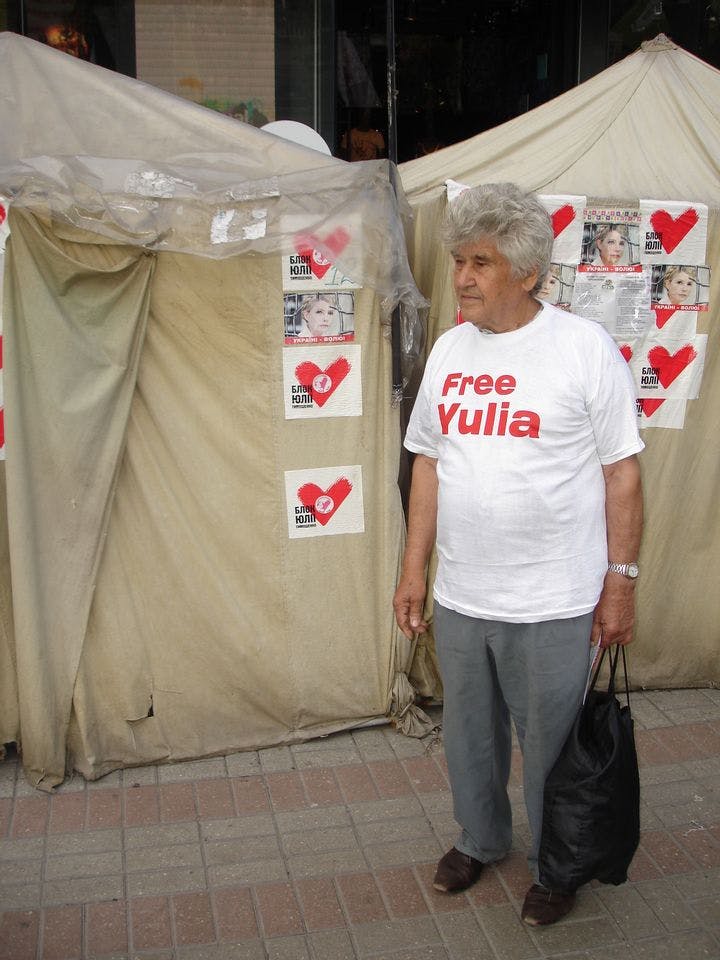Winter 2012
Ukrainian Gloom
– The Wilson Quarterly
Yanukovych has revealed himself to be a power-hungry, Soviet-style administrator.
In a stunning reversal of fortune, the villain of Ukraine's Orange Revolution, Viktor Yanukovych, won the January 2010 contest for the country's presidency fair and square, five years after he was denied the office following allegations of electoral fraud. How has the onetime Soviet republic fared in the two years since he became its chief executive? Horribly, say Rajan Menon, a professor of international affairs at Lehigh University, and political scientist Alexander J. Motyl, who teaches at Rutgers.
As many Ukrainians feared, Yanukovych has revealed himself to be a power-hungry, Soviet-style administrator. In his short time in office, he has broadened the powers of the presidency and brought the judiciary under his control. He has canceled government programs that promote Ukrainian language and culture, upsetting a large portion of the country that believes that the language deserves support after being suppressed by the Soviets. And he has signed over valuable port space in the Crimea to the Russian navy’s Black Sea fleet for what some see as a pittance. The recent imprisonment on corruption charges of former prime minister Yulia Tymoshenko, the populist firebrand who has considerable support in western Ukraine, is widely believed to be politically motivated and has further damaged the president’s image both at home and abroad.
Yanukovych came to power promising badly needed economic reform: A poor country of 46 million people, Ukraine is struggling with high unemployment and an underdeveloped economy. But as an economic reformer, Yanukovych has also proven unsatisfactory, relying on Soviet-style governance that fails to meet the country’s needs. Furthermore, the elite he presides over have little interest in changing a system that allows them to control economic and political resources.
Yanukovych has looked to Europe to drum up results for his embattled presidency. (He may have been disappointed by the spare thanks he received from Moscow for the Black Sea fleet deal; Russia continues to charge Ukraine sky-high prices for oil and gas.) The straw he’s currently grasping at is a free-trade agreement with the European Union, which, however, would require Ukraine to make economic and governance reforms. While it seems unlikely that Ukraine will meet these terms under Yanukovych’s leadership, Russia is none too pleased about even the hint of a westward pivot. The EU must not withdraw the carrot of closer relations no matter how implausible the prospect; “it is a means to promote significant change within Ukraine,” the authors say.
Signs that the president is on increasingly thin ice include recent surveys in Ukraine’s easternmost province, Luhansk, which borders Russia and was once a Yanukovych stronghold. There, the former coal miner saw the proportion of the population who said that they would vote for his party in the parliamentary elections fall from 53 percent in November 2009 to 30 percent recently. Yet no credible alternative to his rule has emerged, and the press and other democratic institutions are under increasing pressure from elements of his administration. Ukrainians may need to mount another revolution to get him out of office, but given the paucity of options, they may well decide it’s not worth it.
* * *
The Source: "Counterrevolution in Kiev" by Rajan Menon and Alexander J. Motyl, in Foreign Affairs, Nov.-Dec. 2011. Photo courtesy of Flickr/SchnitzeljagdTV
